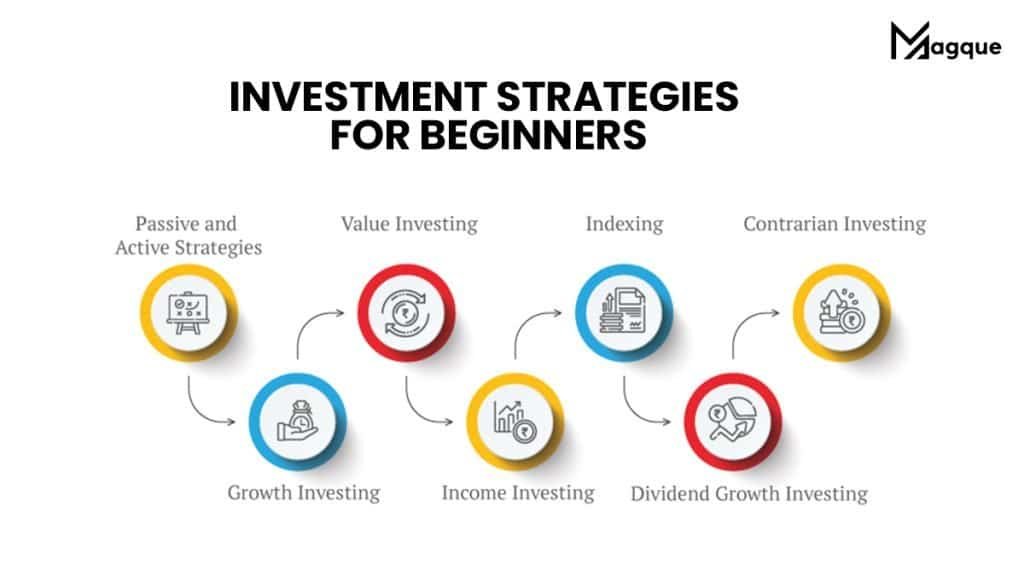Unlock Success: Essential Investment Strategies for Beginners
Are you ready to dip your toes into investing and pave the way for financial success? Whether you’re a novice or looking to refine your approach, understanding the basics of investment strategies can be a game-changer in your wealth-building journey.
The Starting Line: Decoding Investment Strategies
Embarking on your investment journey is akin to stepping onto a playing field where each move counts. Let’s break down the essentials for beginners:
1 Set Clear Goals: Know Your Destination
Before diving in, outline your financial goals. Are you saving for a dream vacation, a new home, or retirement? Knowing your destination helps chart a path tailored to your aspirations.
2 Diversification: Don’t Put All Your Eggs in One Basket
Spread your investments across different assets – stocks, bonds, real estate. Diversification minimizes risks, ensuring a stumble in one sector doesn’t topple your entire financial plan.
3 Risk Tolerance: Understand Your Comfort Zone
Investing involves risks, and understanding your tolerance for them is crucial. A balanced approach that aligns with your risk appetite ensures a smoother ride through market fluctuations.
Navigating the Investment Landscape
1 Educate Yourself: Knowledge is Power
Arm yourself with knowledge. Understand the stock market, bonds, and other investment avenues. The more you know, the better equipped you are to make informed decisions.
2 Start Small: Learn as You Go
Begin with smaller investments. It’s like learning to swim – start in the shallow end before venturing into deeper waters. As you gain confidence, you can gradually increase your investment portfolio.
3 Long-Term Vision: Patience is Key
Investing is not a sprint; it’s a marathon. Cultivate patience and resist making impulsive decisions based on short-term market fluctuations. Long-term strategies often yield the best results.

Crafting Your Financial Arsenal
1 Emergency Fund: Your Financial Safety Net
Before you start investing, ensure you have an emergency fund. This safety net can cover unexpected expenses, keeping your investments untouched during challenging times.
2 Seek Professional Advice: Learn from the Experts
Consider consulting financial advisors or professionals. Their expertise can provide valuable insights tailored to your unique financial situation, helping you make more informed decisions.
3 Stay Informed: Market Trends and Updates
Keep a finger on the pulse of the market. Stay informed about economic trends, company performances, and global events that may impact your investments. Knowledge is your shield against uncertainties.
Bringing It All Together
1 Review and Adjust: Adaptability is Key
Regularly review your investment portfolio. Life changes, and so should your investment strategy. Adjustments ensure your financial plan aligns with your evolving goals and market conditions.
2 Learn from Experience: Embrace the Learning Curve
Every investment experience is a lesson. Embrace successes and setbacks, using them as stepping stones to refine your approach and enhance your financial acumen.
3 Celebrate Milestones: Acknowledge Your Progress
Acknowledge and celebrate your financial milestones. It could be reaching a savings target or witnessing your investment portfolio grow. Recognizing achievements motivates you to stay committed to your financial journey.
In conclusion, venturing into the world of investments can be thrilling and daunting. By arming yourself with knowledge, staying patient, and adapting to changes, you’ll find yourself well on your way to financial success. Remember, it’s not about the destination but the journey of learning, growing, and securing your financial future.
And be sure to explore Magque, your go-to source for the latest and most intriguing updates in the realms of informative tips & reviews!
FAQs
Q1 What are the Best Investment Strategies for Beginners?
Choosing the right investment strategy for a beginner is crucial. Start with a diversified approach, spreading your investments across different asset classes like stocks, bonds, and real estate. This minimizes risk and provides a solid foundation for long-term growth.
Q2 How Much Money Do I Need to Start Investing?
You don’t need a significant amount to start investing. Many platforms allow you to begin with a modest sum. It’s more about consistency than the initial amount. Creating small and gradually increasing your investments over time is prudent for beginners.
Q3 How Do I Determine my Risk Tolerance?
Understanding your risk tolerance is a crucial aspect of successful investing. Assess your comfort level with market fluctuations and potential losses. A balanced portfolio that aligns with your risk appetite ensures you can weather the ups and downs of the market without losing sleep.
Q4 Is Professional Advice Necessary for Beginner Investors?
While not mandatory, seeking professional advice can be immensely beneficial. Financial advisors can provide personalized guidance based on financial goals and risk tolerance. They help navigate the complexities of the market, offering insights that empower you to make informed decisions.
Q5 How Often Should I Review My Investment Portfolio?
Regularly reviewing your investment portfolio is essential. However, the frequency may vary based on your goals and the market conditions. Generally, an annual review is a good starting point. This allows you to make necessary adjustments, ensuring your investments align with your evolving financial objectives.
Read More:- Best Savings And Investments Companies In USA For 2023
